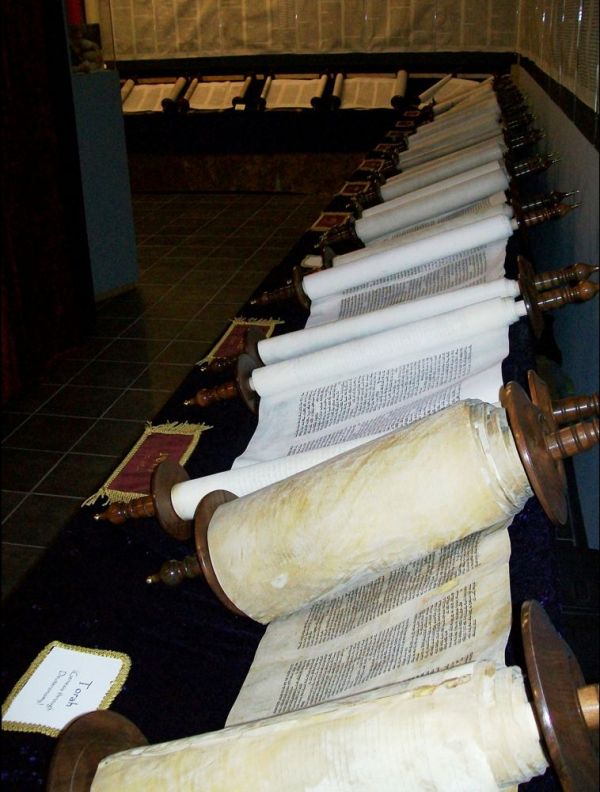(1Cor 10,1-6.10-12)
3rd Sunday in Lent (year C)
1Corinthians 10:1 For I do not want you to be ignorant, O brethren, that our fathers were all under the cloud, all crossed the sea,
1Corinthians 10:2 all were baptized in relation to Moses in the cloud and in the sea,
Paul, in this passage, refers us to the history of the past, to the lesson of history. He reminds us of the deeper meaning of history, which is the history of salvation. It is said that history is a teacher of life, but the pupils learn nothing. Paul instead says that from the history of Israel one must learn. The history of Israel is not just any history, but it is a way in which divine revelation was historically manifested. Revelation, in fact, was not manifested through the explanation of concepts, but through certain historical facts that are then also read and interpreted. The history of Israel is an exemplary history, so it is right and proper, if one wants to understand Jesus Christ, to see all the sacred history that prepares him. Among other things, this also accustoms us to reading our own little personal history, which is also salvation history because the Lord walks with us.
"For I do not want you to be ignorant": The Corinthians were supposed to know the facts narrated here, but the apostle wants them to know the typological significance that these facts have, and which is not to be ignored. Jesus Christ is the end result of a long journey, and we must know the journey that preceded it. Paul is very respectful of Israel's history and feels he must tell it. He refers us to these examples from the past that are extraordinary events, but they are also events of sin, and yet always instructive because they show what God's way is.
"Our fathers". Christians can consider the ancient Israelites as their fathers, because the Church succeeded the synagogue, and they are the true heirs and children of Abraham.
"They were all": Three times Paul repeats this expression. As if to say that salvation had been given to all. For all were led by the cloud, that is, by the presence of God, and all crossed the sea. All gained freedom from slavery and all were guided by God on the way to the promised land. Hence, on God's part, no exclusion, no preference towards some at the expense of others. He brought all his people out of Egypt, for all he parted the sea, for all he willed the cloud. All were in the condition of grace and truth that would enable them to conquer the promised land and possess it forever.
This universality of grace and truth for Paul is akin to a baptism. There is an immersion also of the children of Israel, even though their baptism is merely a figure of that instituted by Jesus Christ. However, there is a true immersion of the Israelites in the sea and in the 'cloud' and this immersion for them is true salvation, true deliverance.
Israel lived under the cloud, that mysterious cloud that guided the Israelites through the desert and sheltered them from the sun: signifying the presence of God, the Shekinah. To be under the cloud is to be under God's protection. They crossed the sea and were baptised: the passage from the land of slavery, which is Egypt, to the promised land, takes place through the crossing of the Red Sea, and this is a baptism because it signifies the detachment from the slavery of Egypt, liberation and purification, and the journey to the promised land.
"To be of Moses". Moses, the mediator of the old covenant, was a figure of Jesus Christ, and the Israelites led by him to the promised land were a figure of the Christians led by Jesus Christ to heaven. Now, just as Christians through baptism are incorporated into Jesus Christ and made subject to him as their Lord, whose laws they are bound to observe, so for the Israelites the mysterious cloud and the crossing of the Red Sea were a kind of baptism, whereby they remained subject to Moses and obliged to observe his laws. From that moment on, the people were separated from Egypt forever and belonged to the God who liberated them and to the prophet-mediator whom God gave them as their leader.
The mysterious cloud, a perceptible sign of God's presence, and of the favour He bestowed on His people, was a figure of the Holy Spirit, who is given in the baptism of Jesus Christ, and similarly the dry-foot passage through the Red Sea and the consequent deliverance from the bondage of Pharaoh, were figures of our deliverance from the bondage of sin through the waters of baptism.
Having stated this truth, Paul reminds us that it is not enough to come out of Egypt to have the promised land. The going out is one thing, the conquest and possession of the land is another. Between going out and conquering the land, there is a whole desert to cross. For the Israelites, the desert lasted for forty years; for Christians it lasts their whole life.
With baptism we come out of the slavery of sin, with a life of perseverance striving to conquer the kingdom of heaven we walk towards the glorious resurrection that will take place on the last day.
Argentino Quintavalle, author of the books
- Revelation - exegetical commentary
- The Apostle Paul and the Judaizers - Law or Gospel?
Jesus Christ true God and true Man in the Trinitarian mystery
The prophetic discourse of Jesus (Matthew 24-25)
All generations will call me blessed
Catholics and Protestants compared - In defence of the faith
(Buyable on Amazon)




